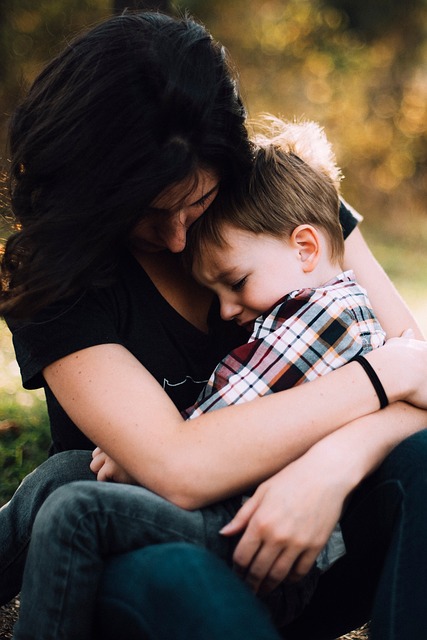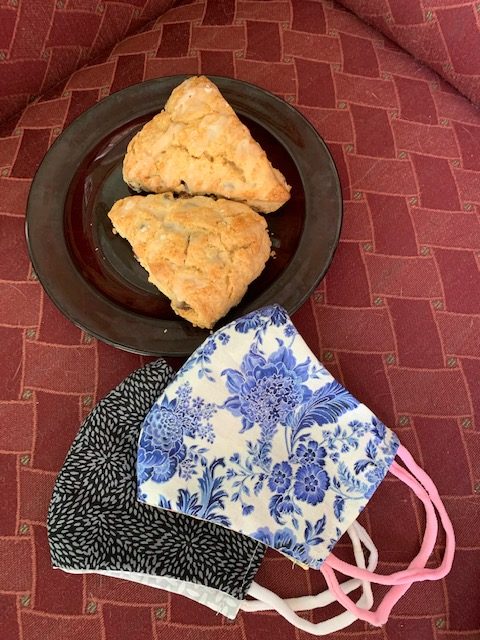A friend came over recently and brought my husband and me freshly-baked scones and homemade masks. It was a personal and lovely gesture during a time when we all could stand to have something lovely and personal happen to us. Naturally, I wanted to give her a hug after receiving such a thoughtful gift.
We dutifully refrained, of course, given the “times in which we live”, and standing the proscribed six-feet apart, gave each other the pandemic air hug and chatted for a bit.
After she left, I had an epiphany: I miss the social hug.
I know I am stating the obvious for many people. But I’m not a hugger by nature. Hugging has always been hard for me, so getting to a point where I would even say, “I miss social hugging” was a journey for me.
As a child, I didn’t like to be hugged at all. I was a ducker when it came to hugging anyone, family included. Anytime a hug was imminent, I would start the “I don’t want you to touch me dance.” You know what I’m talking about: dodging, bowing, turning away.
I clearly remember my mother fussing at me that I made the people that loved me feel bad. This was not my intent at all; I just didn’t want to be touched. I learned to reluctantly accept hugs from people for whom the right of refusal was not an option: parents, grandparents, extended family. But it had to be quick, and it wasn’t pretty.
I resembled someone trying to avoid the plague: standing as far away from the person as possible, crouching with my head turned away, arms left hanging loosely at my sides. At best, it was a half-hearted and brief encircling of the other person with a quick duck away to make my escape.

Honestly, I don’t know what my problem was! I didn’t experience any type of hug trauma that I can recall. Maybe it was a tactile thing that I didn’t understand. It was just the way I was, and like most kids, it didn’t occur to me to question why I felt the way I did about hugging.
I just knew I didn’t like it.
But we need human interaction and touch. In fact, study after study has shown that people are hard-wired for physical touch in every stage of development, and there is even a name for not getting enough of it: touch starved. Journalist Lauren Sharkey explains, in her article, “What does it mean to be touch starved?”
Being touch starved — also known as skin hunger or touch deprivation — occurs when a person experiences little to no touch from other living things.
Ms. Sharkey cites several studies explaining how a lack of skin-to-skin contact affects physical, mental, and emotional health in a variety of ways: increased depression, anxiety, and stress, to name a few. I’m not sure when, but I got over myself and grew to appreciate the benefits of hugs from family members. Certainly, as a wife and mother, I cannot fathom a world without hugging the people I hold most dear.
Being okay with family hugs was one thing, but social hugging was still difficult.
In high school, college, and beyond, I would put up with friendly hugs to be socially acceptable. But truthfully, I was still not comfortable with it. I continued to wonder why I was so weird about it.
Maturity, wisdom, changing life perspectives, and finally being able to stay in one place long enough to form close social bonds have seen fit to help me become a social hugger without feeling uncomfortable.
Cultural exposure has helped too.
My husband worked in Latin America for several years, and hugging and kissing by a way of greeting is a social norm. I’ll never forget the first time I was pulled into a big bear hug (accompanied by double-barreled smooches) by one of his colleagues whom I was meeting for the first time. Yikes! It was a good learning experience though; it gave me perspective and got easier with each Latin colleague I met. Living in the south has also given me a cultural perspective. Southerners are hands down the warmest people in the country, and ya’ll some serious huggers!
And as I said, I cannot imagine motherhood with hugging.
 Motherhood particularly helped me realize that physical touch is normal and important. The medical community has long known that touch is vital. As soon as possible after his recent birth, hospital staff had my son and daughter-in-law each spend some skin-to-skin time with my new grandson to start the bonding process and initiate well-being. I wish I could be there to give some physical snuggles myself!
Motherhood particularly helped me realize that physical touch is normal and important. The medical community has long known that touch is vital. As soon as possible after his recent birth, hospital staff had my son and daughter-in-law each spend some skin-to-skin time with my new grandson to start the bonding process and initiate well-being. I wish I could be there to give some physical snuggles myself!
With our lives turned upside down while we are making a history that nobody wanted to make, we are learning things about ourselves that we might not have given any thought to under normal circumstances. And today, for me, that was dismay at being unable to a hug a friend who did something wonderful for me.
And even though I, like the rest of you, am missing hugs, I am grateful for my quarantine partner. I can go stand in front of him at any time and declare, “I need a hug!” knowing he will comply, no questions asked. So I won’t be suffering from touch starvation anytime soon.











